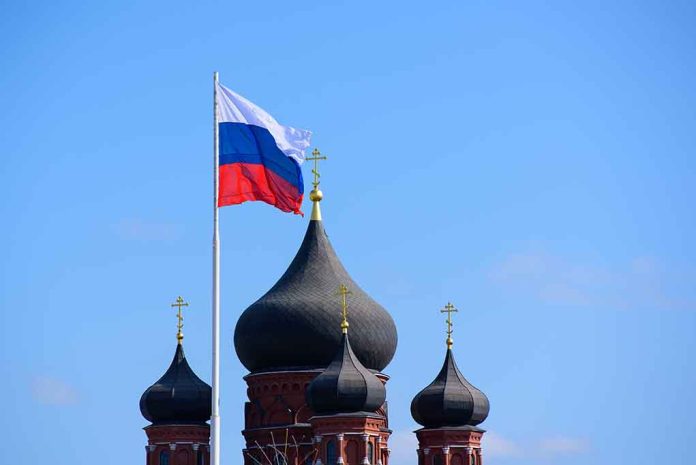
Russia has issued a stern warning to the United States about potential military strikes against Iran’s nuclear facilities, emphasizing that such actions would have “catastrophic” consequences for the entire Middle East region.
Key Takeaways
- Russian Deputy Foreign Minister Sergei Ryabkov warned of “catastrophic” consequences if the US attacks Iran’s nuclear infrastructure.
- President Donald Trump has threatened to bomb Iran if it doesn’t agree to a new nuclear deal.
- Iran has indicated it might pursue nuclear weapons if attacked by the United States.
- Russia, alongside China, has conducted joint naval drills with Iran in the Gulf of Oman.
- Tensions continue to escalate as the US increases its military presence in the Persian Gulf region.
Russia’s Strong Warning Against Military Action
Russian Deputy Foreign Minister Sergei Ryabkov has taken a firm stance against any potential US military strikes on Iran’s nuclear facilities. His warnings come amid rising tensions between Washington and Tehran, with President Trump reinstating his “maximum pressure” campaign and reimposing strict sanctions on the Islamic Republic. The Russian diplomat specifically condemned the use of threats and ultimatums in international relations, calling such methods “inappropriate” in addressing concerns over Iran’s nuclear program.
JUST IN: 🇷🇺🇺🇸 Russia warns the United States that strikes on Iran would have catastrophic consequences. pic.twitter.com/zuTtqP2sqF
— BRICS News (@BRICSinfo) April 1, 2025
Ryabkov’s comments reflect Moscow’s growing concern about the possibility of armed conflict in a region already destabilized by multiple ongoing crises. Russia has consistently opposed military solutions to the Iranian nuclear issue, instead advocating for diplomatic negotiations and a return to the framework established by the 2015 nuclear deal, which the United States unilaterally withdrew from during Trump’s previous administration. The Russian government views military action as a path that could trigger widespread regional instability.
Escalating Tensions and Military Posturing
The current situation has been marked by increasingly hostile rhetoric from both Washington and Tehran. President Trump has publicly threatened unprecedented bombing if Iran does not agree to his terms for a new nuclear agreement. In response, Iran has enhanced its missile capabilities and military readiness, while also suggesting it might be forced to pursue nuclear weapons if attacked. This dangerous cycle of threats and counter-threats has created a volatile environment in which miscalculation could lead to direct military confrontation.
The United States has significantly increased its military presence in the Persian Gulf and Indian Ocean regions, deploying additional naval assets and air power. Meanwhile, Russia and China have demonstrated their support for Iran through joint naval exercises in the Gulf of Oman. These military maneuvers reflect the broader geopolitical dimensions of the Iran nuclear issue, with major powers taking sides and potentially setting the stage for a wider international confrontation if diplomacy fails.
Diplomatic Deadlock and Paths Forward
Currently, diplomatic efforts appear stalled, with Iran refusing direct negotiations under the pressure of sanctions while indicating openness to indirect talks. Ali Larijani, a senior adviser to Iran’s Supreme Leader Ayatollah Ali Khamenei, has publicly stated that Iran might be forced to develop nuclear weapons if faced with attack, despite the country’s long-standing official position that its nuclear program is purely for peaceful purposes. This deadlock increases the risk of miscalculation, leading to conflict.
Russia has positioned itself as a potential mediator in the crisis, with Ryabkov stating that Moscow is “ready to offer its good offices” to Washington, Tehran, and other interested parties. The Russian diplomat emphasized that diplomatic efforts must be redoubled while there is still time to reach an agreement. Whether these offers of mediation will be accepted remains uncertain, as US-Russia relations have shown additional strain after Trump threatened secondary tariffs over Russian oil purchases, further complicating the diplomatic landscape.
Sources:
- Russia Warns Against U.S. Strike on Iran Nuclear Sites: “Catastrophic”
- Russia condemns ‘ultimatums’ after Trump threatens to bomb Iran
- Russia: ‘Catastrophic’ Consequences If US Strikes Iran




